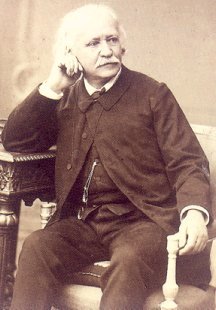
| Le site web Alexandre Dumas père | The Alexandre Dumas père Web Site | |||
 |
||||
| Dumas|Oeuvres|Gens|Galerie|Liens | Dumas|Works|People|Gallery|Links | |||
 Meurice had a long and distinguished career as a dramatist collaborating with Dumas, Sand and Hugo, as well as writing plays on his own.
Meurice had a long and distinguished career as a dramatist collaborating with Dumas, Sand and Hugo, as well as writing plays on his own.